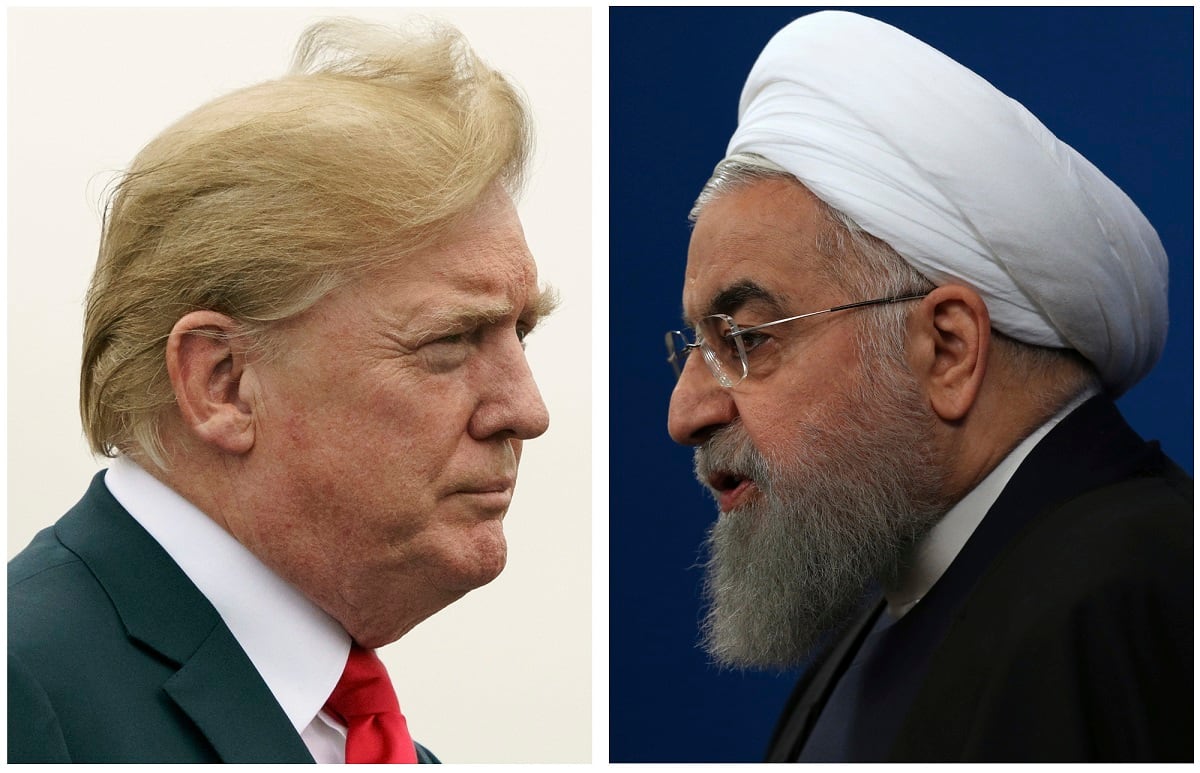UNITED NATIONS — U.S. Secretary of State Mike Pompeo urged the U.N. Security Council on Wednesday to again ban Iranian ballistic missiles capable of delivering nuclear weapons and to maintain an arms embargo that is scheduled to be lifted in 2020 under the landmark Iran nuclear deal.
He also urged the council to prevent Iran from circumventing existing arms restrictions by authorizing the inspection of ships in ports and stopping them on the high seas.
Pompeo spoke at a Security Council meeting on Iran's compliance with the 2015 nuclear agreement that the Trump administration pulled out of earlier this year, and the council resolution endorsing it.
RELATED

He was critical of the council for weakening the ban on nuclear-capable Iranian missiles that was in effect from 2010 to 2015. The resolution adopted in 2015 to endorse the nuclear deal "calls upon" — but does not require — Iran to halt such activity, and it also supports lifting the arms embargo in 2020.
Pompeo accused Iran of building the largest ballistic missile force in the region, one capable of threatening the Mideast and Europe, saying it has more than 10 ballistic missile systems in its inventory or in development. He quoting the head of the Iranian Revolutionary Guard's airspace division, Amir Ali Hajzadeh, boasting Monday that Iran is capable of building missiles with a range beyond 2,000 kilometers (1,200 miles).
"Iran has exploited the goodwill of nations and defied multiple Security Council resolutions in its quest for a robust ballistic missile force," Pompeo said. "The United States will never stand for this. No nation that seeks peace and prosperity in the Middle East should either."
RELATED

But the United States faces an uphill struggle in getting Security Council approval for Pompeo's proposals, especially following U.S. withdrawal from the 2015 nuclear deal, which is still supported by the five other parties — Russia, China, Britain, France and Germany. And the Trump administration's re-imposition in November of sanctions against Iran that it had eased under the nuclear deal has also angered some key council members.
Before the council meeting, eight European Union nations underlined their commitment to the Iran nuclear deal while urging Tehran to stop its "destabilizing regional activities" especially the launch of ballistic missiles.
Ambassadors of the eight nations — Belgium, France, Germany, Italy, Netherlands, Poland, Sweden and the United Kingdom — said "it has been confirmed that Iran continues to implement its nuclear related commitments."
But they warned that “ballistic missile related activities such as the launch of nuclear capable missiles and any transfers of missiles, missile technologies and components ... would be in violation of Security Council resolutions.”



